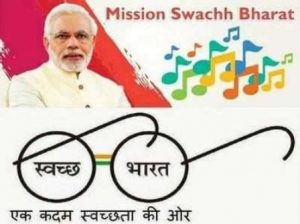Over 96% toilet use confirms independent verification of Swachh Bharat Grameen
The survey also covered schools, anganwadis and public/community toilets in the villages.
 The National Annual Rural Sanitation Survey (NARSS) 2018-19, conducted by an Independent Verification Agency (IVA) under the World Bank support project to the Swachh Bharat Mission Gramin (SBM-G), has found that 96.5 per cent of the households in rural India who have access to a toilet use it.
The National Annual Rural Sanitation Survey (NARSS) 2018-19, conducted by an Independent Verification Agency (IVA) under the World Bank support project to the Swachh Bharat Mission Gramin (SBM-G), has found that 96.5 per cent of the households in rural India who have access to a toilet use it.
The NARSS also re-confirmed the Open Defecation Free (ODF) status of 90.7 per cent of villages which were previously declared and verified as ODF by various districts/states. The survey was conducted between November 2018 and February 2019 and covered 92,040 households in 6,136 villages across states and Union Territories of India.
As per the survey, 93.1 per cent of households were found to have access to toilets during the survey period (the corresponding figure as per the SBMG MIS in November 2018 was 96 per cent), 90.7 per cent of villages which were previously declared and verified as ODF were confirmed to be ODF and the remaining villages also had sanitation coverage of about 93 per cent. Another key finding of the survey highlighted that 95.4 per cent of the villages surveyed had minimal litter and minimal stagnant water.
“The survey used the PPS (Probability Proportion to Size) sampling methodology, which yields results within a confidence interval of 95 per cent.”
Data was collected using the Computer Assisted Personal Interviewing (CAPI) platform. The survey also covered schools, anganwadis and public/community toilets in these villages.
The EWG noted the satisfactory completion of the survey round 2 (for 2018-19, after last year’s NARSS 2017-18). Following this, the IVA submitted their provisional summary results report and raw data to the Ministry of Drinking Water and Sanitation, and the same have been uploaded and made publicly accessible on the Ministry of Drinking Water and Sanitation website.
Also read: Swachh Bharat: Delayed but determined?
The IVA presented their findings to the Expert Working Group (EWG) constituted for oversight of NARSS, comprising representatives from organisations including the World Bank, UNICEF, Water Aid, Bill & Melinda Gates Foundation, India Sanitation Coalition, NITI Aayog, and Ministry of Statistics and Program Implementation.
“Since its launch in October 2014, the SBM, ‘the world’s largest sanitation program’, has been instrumental in changing the behaviour of hundreds of millions of people with respect to toilet access and usage.”
500 million people have stopped defecating in the open since the SBM began, down from 550 million at the beginning of the programme to less than 50 million today. Over 9 crore toilets have been built across rural India under the Mission. Over 5.5 lakh villages and 615 districts have been declared ODF, along with 30 ODF States and Union Territories.
